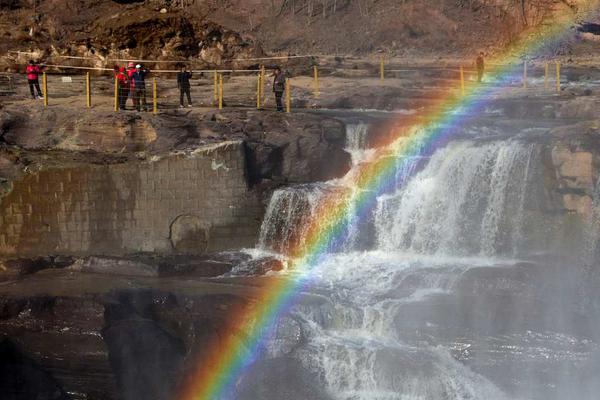In theory,?? ?? it was the ideal day for OpenAI to release a blog post titled Governance of Superintelligence. In practice, the post and its timing just proved how far the folks at the forefront of AI world are from regulating their technology, or understanding the proper context.
The company behind one of the best-known AI image generators (Dall-E) and the best-known AI chatbot (ChatGPT) published the post because it wants to be seen as a group of sober adults, taking both the promise and the threat of its technology seriously. And look what just happened: AI-generated images of the Pentagon and White House on fire sent a brief shock wave through the stock market. What better time for the market leader to showcase sobriety?
There is a kind of "trust and safety" contest alongside the AI arms race between Microsoft, ChatGPT's main ally, and Google. At the Google IO keynote two weeks ago, excitable announcements about Bard integration were tempered by a segment on "Responsible AI." Last week, OpenAI CEO Sam Altman gave Congressional testimony looking like the humbler, more human answer to Mark Zuckerberg. Next up: OpenAI co-founder Greg Brockman, fresh from his own grilling at the TED conference, is taking his responsible adult roadshow to Microsoft Build.
But what did "Governance of Superintelligence," co-authored by Altman and Brockman, actually have to say for itself? At under a thousand words, not much — and the lack of specificity could harm their cause.
Here's the TL;DR: AI carries risks. So did nuclear power. Hey, maybe we should have a global AI regulatory body similar to the International Atomic Energy Agency (IAEA)! But also there should be a lot of public oversight of this agency, and also the kind of stuff OpenAI is doing right now isn't "in the scope" of regulation, because it's more about helping individuals.
Besides, someone is probably going to create a superintelligence sooner or later, and stopping them would be "unintuitively risky," so "we have to get it right." The end.
There is a clear self-serving purpose to OpenAI amping up the AI threat like this. You want [insert your preferred bad actor here] to get to superintelligence — also confusingly known as AGI, for Artificial General Intelligence —first? Or would you rather support the company so transparent about its technology, they've got "open" in the name?
Ironically, though, OpenAI hasn't been fully open about the language models it has been using to train its chatbots since 2019. The company is reportedly preparing an open source model, but it's very likely to be a pale shadow of GPT. OpenAI was a nonprofit, now it's very much a for-profit with a $30 billion valuation. That may explain why the blog post read more like marketing pablum than a white paper.
When the "Pentagon explosion" AI images hit the internet, it should have been a gimme for OpenAI. Altman and co. could have spent a few more hours updating their prewritten post with mention of AI tools that can help us sift fake news from the real thing.
But that might draw attention to an inconvenient fact for a company looking to hype AI: the problem with the images wasn't AI. They weren't especially convincing. Fake pictures of fires at famous landmarks are something you could create yourself in Photoshop. Local authorities quickly confirmed the explosions hadn't happened, and the stock market corrected itself.
Really, the only problem was that the images went viral on a platform where all the trust and safety features have been removed: Twitter. The account that initially spread them was called "Bloomberg Feed." And it was paying $8 a month for a blue checkmark, which no longer means an account is verified.
In other words, Elon Musk's wholesale destruction of Twitter verification allowed an account to impersonate a well-known news agency. The account spread a fear-inducing picture that was picked up by Russian propaganda services like RT, from whom Musk has also removed the "state media" label.
It is doubtful whether we will ever get an international agency for AI that is as effective as the IAEA. The technology may move too fast, and be too poorly understood, for regulators. But also the main threat it poses for the foreseeable future — even according to "AI godfather" Geoffrey Hinton, the most prominent doomsayer — is that a flood of AI-generated news and images means the average person "will not be able to tell what is true any more."
But in this particular test, the tripwires of fake news worked — no thanks to Musk. What we need more urgently is an international agency that can rein in conspiracy-spewing billionaires with massive megaphones. Perhaps Altman, who has previously called Musk a "jerk" and called out his fibs about OpenAI, could write a sober adult blog post about that.
Topics Artificial Intelligence
 38 TV shows we can't wait to see in 2024
38 TV shows we can't wait to see in 2024
 Samsung 3D gaming monitor deal: Get $200 and a free headset
Samsung 3D gaming monitor deal: Get $200 and a free headset
 Best Samsung Galaxy Watch Ultra deal: Save $230 at Best Buy
Best Samsung Galaxy Watch Ultra deal: Save $230 at Best Buy
 Wordle today: The answer and hints for April 14, 2025
Wordle today: The answer and hints for April 14, 2025
 CES 2024: Asus Zenbook Duo is a gnarly dual
CES 2024: Asus Zenbook Duo is a gnarly dual
 NYT Connections Sports Edition hints and answers for April 13: Tips to solve Connections #202
NYT Connections Sports Edition hints and answers for April 13: Tips to solve Connections #202
 Google Pixel 9a available: Buy yours today
Google Pixel 9a available: Buy yours today
 Socialism or Barbarism?
Socialism or Barbarism?
 STYKO покинул IC Team — он ищет новую команду в качестве капитана
STYKO покинул IC Team — он ищет новую команду в качестве капитана
 Reckless EPA news release distorts the new, grim U.S. Climate Report
Reckless EPA news release distorts the new, grim U.S. Climate Report
 Best Garmin deal: $100 off Garmin vívoactive 5
Best Garmin deal: $100 off Garmin vívoactive 5
 <em>The Voice</em> and Its Village
<em>The Voice</em> and Its Village
 NYT Connections hints and answers for April 13: Tips to solve 'Connections' #672.
NYT Connections hints and answers for April 13: Tips to solve 'Connections' #672.
 PARIVISION против Team Liquid — ставки на киберспорт
PARIVISION против Team Liquid — ставки на киберспорт
 TikTok wants me to host a dinner party. Is that an actual recession indicator?
TikTok wants me to host a dinner party. Is that an actual recession indicator?
 Is 'Nickel Boys' streaming anywhere? Here's where to watch it.
Is 'Nickel Boys' streaming anywhere? Here's where to watch it.
 Best Amazon Fire TV Cube deal: Save $30 at Amazon
Best Amazon Fire TV Cube deal: Save $30 at Amazon
 Best iPad deal: Get the 2021 iPad Mini (6th gen) for $539.99
Best iPad deal: Get the 2021 iPad Mini (6th gen) for $539.99
 Report: Used Teslas flooded the market in March 2025
Report: Used Teslas flooded the market in March 2025
Golden State Warriors vs. Los Angeles Lakers 2025 livestream: Watch NBA onlineUber and Waymo start the countdown for Austin launch next monthWordle today: The answer and hints for February 6, 2025NYT Strands hints, answers for February 7Best Fire TV Stick 4K deal: Save $20 at AmazonWhat's new to streaming this week? (Feb. 7, 2025)In an ironic twist, a 1991 Shell ad contains a warning about climate changeSpotify Premium Individual: Get two months freeUber and Waymo start the countdown for Austin launch next monthNew 'browser syncjacking' cyberattack lets hackers take over your computer via Chrome The best wildlife livestreams you need to watch all summer Fear and Loathing in Cascadia Bankers’ Robberies Peace as Armageddon Here’s what to do if you give your information to a scammer Love, Actually Go Tell it in the Mountain State Best Mac Mini deal: Save $50 on 2024 Apple Mac Mini M4 Best Amazon Spring Sale deal: Get a free $100 Amazon gift card with the Samsung Galaxy Ring Exactly how Nintendo can avoid Joy
0.2136s , 9948.5 kb
Copyright © 2025 Powered by 【?? ??】Enter to watch online.OpenAI says AI should be regulated like nukes. Really?,